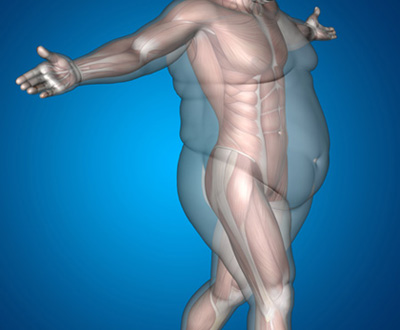How to Lose Weight with Intermittent Fasting
- Published in Diet, Nutrition & Supplements

If you haven’t already heard, intermittent fasting has been gaining popularity when it comes to weight-loss lately, and there are several reasons why. There have been countless weight-loss programs introduced to America, but there is something different about this particular strategy that sets them apart. What is intermittent fasting? Intermittent fasting is a weight-loss strategy that involves regular short-term fasts to help regulate weight and appetite with calorie counting not necessarily required.
5 Best Foods to Help You Lose Weight
- Published in Diet, Nutrition & Supplements

With summer just around the corner, it is time to get serious about our diets and workout regimens to get our bodies ready to bare some skin. As many of you know, diet is just as important (if not more important) as exercise. The goal for your diet is to significantly reduce your appetite to prevent junk food impulses, lose weight quickly, and improve your metabolism. Maintaining a proper diet will keep you fuller and more satisfied throughout the day.
If you are looking to shed some pounds and not sure how, keep reading. We’ve assembled a list of 5 foods to include in your grocery list that will help you reach your goal weight along with some helpful tips and recommendations to consider.
Real-life experience of continuous long-term testosterone therapy on anthropometric, endocrine and metabolic parameters for up to 10 years
- Published in Testosterone Replacement Therapy

Cheating on a diet - good or bad?
- Published in Diet, Nutrition & Supplements

In discussions about dieting, a topic that often comes up is that of "cheating"; is it good or bad to cheat once in a while during a diet?
In order to answer this question appropriately, it is necessary to look at both the quantitative and qualitative aspects of dieting, and the physiological and psychological responses they each elicit...
Dieting - what are we really talking about?
The dictionary definition of "diet" and "dieting" is "to eat and drink sparingly or according to prescribed rules" or "a controlled intake of foods, as for medical reasons or cosmetic weight loss".
However, these definitions do not tell us anything about the two different aspects of dieting; the quantitative and qualitative parts, and their respective consequences. In everyday parlance, dieting usually implies both eating less calories (quantitative aspect) than usual, and eating "specific" foods (qualitative aspect).
Nevertheless, when considering the consequences of "cheating" and trying to answer the question whether it is a good or bad practice, it is important to distinguish these aspects of dieting. Let's take a quick look at each:
Testosterone Replacement Therapy (TRT) in Testosterone Deficient men - effects on fat loss, waist reduction and metabolic syndrome components
- Published in Testosterone Replacement Therapy

Testosterone deficiency in men, aka hypogonadism, is associated with increased total and abdominal fat mass, and reduced muscle mass, which negatively impacts body composition.[1, 2] This contributes to development of risk factors like insulin resistance, chronic inflammation, and atherogenic dyslipidemia (a triad of increased blood levels of small, dense LDL particles and triglycerides, and decreased levels of HDL particles), which increase the risk for cardiovascular disease, metabolic syndrome and diabetes.[1, 3-16]
Previous studies have shown that testosterone replacement therapy ameliorates these risk factors in testosterone deficient (hypogonadal) men; it increases insulin sensitivity [17-20] and HDL (the "good" cholesterol) [9, 10, 20, 21], and reduces waist circumference [9, 20, 22], fasting blood glucose [9, 20] triglycerides (blood fats)[9], LDL (the "bad" cholesterol) [19, 22-24], and several inflammatory markers.[17, 25]
A 2011 meta-analysis concluded that testosterone replacement therapy improves metabolic control, as well as reduces abdominal obesity.[9] Many studies have shown that testosterone replacement therapy in hypogonadal men increases muscle mass and reduces fat mass.[19, 26-32] Further, adding testosterone (50 mg/day for 1 year, administered as a transdermal gel) to a diet and exercise program results in greater therapeutic improvements of glycemic control and reverses the metabolic syndrome.[20]
Testosterone also has direct (non-obesity mediated) beneficial effects on many metabolic and cardiovascular risk factors [12, 33-37], and reduces death risk independently of body fat status.[38] In line with all these effects, low testosterone levels are associated with increased risk of cardiovascular complications [39], and all-cause and cardiovascular disease death [40-42]. Low testosterone may thus be a predictive marker for men at high risk of cardiovascular disease.[41] In a group of men aged 50-91 who were followed for 20 years, it was found that men whose total testosterone levels were in the lowest quartile (241 ng/dl or lower) were 40% more likely to die than those with higher levels, independent of age, adiposity, lifestyle or presence of cardiovascular risk factors.[38]
Thus, treatment of testosterone deficient men with testosterone has demonstrated considerable health benefits. Despite this, critics state that most of the studies on testosterone replacement therapy were too small. They also argue that the studies were of too short duration (most of them lasting 6-12 months), and that the long-term effects of testosterone on body composition are not known.
Two 5 year long studies were just published that addressed the duration and small study size shortcomings in previous research...
Effects of 6-year Long-Term Testosterone Replacement Therapy (TRT) in Patients with ‘‘Diabesity’’
- Published in Testosterone Replacement Therapy

March 6th 2014 FDA approved Aveed for treatment of male hypogonadism, aka testosterone deficiency.[1] Aveed is a long-acting form of injectable testosterone called testosterone undecanoate. In Europe, testosterone undecanoate (under the name Nebido) has a long successful TRT track record for treatment of testosterone deficiency and its consequences (especially obesity, the metabolic syndrome and diabetes).[2-16]
In contrast to shorter acting forms of testosterone (e.g. cypionate), testosterone undecanoate only needs to be injected every 6 to 12 weeks, and thereby offers practical benefits to patients. (Comment: for Nebido (1000 mg per 4 ml) the initial interval is 6 weeks, followed by intervals of 10-14 weeks; for Aveed (750 mg per 3 ml) the initial interval is 4 weeks, followed by 10-week intervals).
Five days after the FDA approval a notable and impressive 6-year long TRT study was published, confirming the health benefits of TRT that have previously been found in shorter term studies... [44]



